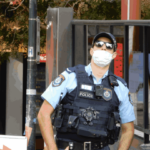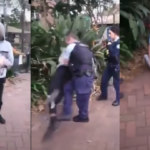Sexual Abuse Rife Within ADF

Last week, Australian Defence Force (ADF) Deputy Chief Raymond Griggs testified before the Royal Commission Into Institutional Responses to Child Sexual Abuse about physical and sexual abuse in the ADF.
He spoke about a range of incidents and practices, including “nuggeting” – where a hard brush is used to rub boot polish on the genitals of junior defence force recruits. He also spoke of the practice of pushing cadets’ heads into used toilet bowls and pinching their genitals in the shower.
The latest Royal Commission case-study is focusing on the experiences of child sexual abuse victims at HMAS Leeuwin between 1960 to 1980, the Army Apprentice School Balcombe between 1970 to 1980 and ADF Cadets from 2000 onward.
The Royal Commission heard the ADF has records of 154 reported incidents of abuse within the cadet program dating from 2001 – noting the problem is likely to be much more prevalent given the culture of under-reporting.
Mr Griggs undertook to implement changes aimed at reducing the number of future incidents.
Institutional Sexual Assault
In 2013, Australia’s Governor-General Quentin Bryce, acting on the advice of then Prime Minister Julia Gillard, established the current Royal Commission.
The Commission’s final report will not be released until 2017, with victims’ groups saying reform is long overdue.
States have responded in various ways – earlier this year, New South Wales moved to scrap the time limit for civil claims against alleged abusers, meaning compensation can be sought at any time.
The move is consistent with the criminal law, which does not have a limitation period for serious sexual assault cases.
Criminal Charges for Institutions
Justice McClellan, the Royal Commission’s President, has flagged a recommendation for institutions to face criminal charges for abuses within their facilities.
In both Canada and the UK, institutions may be liable for the “deliberate criminal act of a member of that institution”, even when the institution itself has acted without negligence.
McClellan says this may assist victims in achieving justice.
Seeking Justice
Those who speak out about institutional abuse report being bullied, intimidated and isolated.
A woman, identified only as CJF, told the Commission she was “bullied for reporting former cadet instructor Christopher Adams, who is now in gaol for sexually abusing teenage cadets.”
The woman was only 15-year-old when Mr Adams began grooming her, before pressuring her into sex. She testified feeling too afraid and ashamed to initially report the conduct, fearing the potential repercussions.
Police forces across Australia have also been criticised for ignoring abuse committed by senior officers against junior females. Statistics suggest that 22% of sexual abuse reports against police end without any consequences for the officers accused, and that most others resulted in internal counselling only.
The Commission has also suggested a National Redress Scheme, where victims can seek compensation outside the court system.
However, we will need to wait for the Commission’s final recommendations next year before the ball can start rolling on the implementation of the measures.






